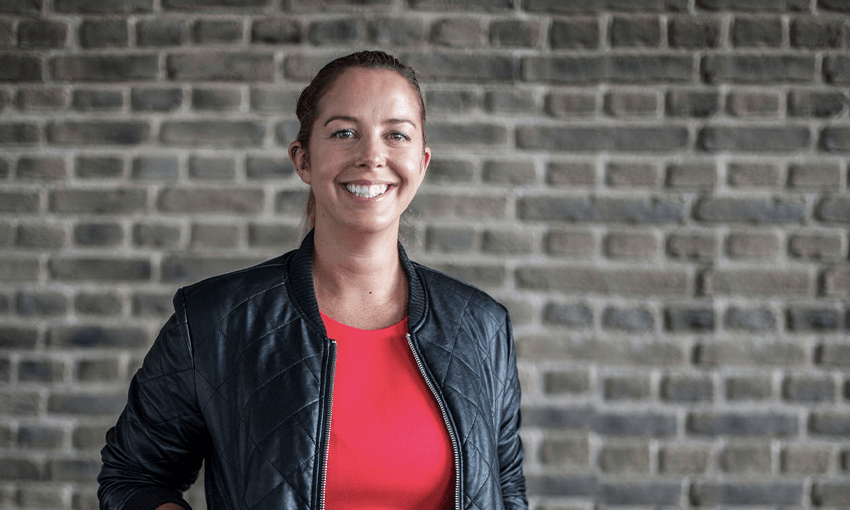There’s more to wellness than just your physical health – your financial health is just as important. For women, taking steps towards reaching financial wellness can help make a huge difference in addressing economic inequalities.
When we think of wellness, most of us probably think of things like exercising regularly or eating a balanced diet. But wellness, or the “the active pursuit of activities, choices and lifestyles that lead to a state of holistic health”, involves so much more. It can be emotional, spiritual, social and, underpinning all that: financial.
Money is a major source of stress for many people and often impacts our careers, relationships, and broader mental health. Financial wellness helps mitigate some of these stressors, but according to Natalie Ferguson, co-founder of online investment platform Hatch, we simply aren’t thinking enough about financial wellness.
“One of the things I think our industry has done a disservice to in the past is making it out like finance has been outside everything else we do in life. Things like investing and putting our money to work have been made an exclusive club, and it makes people think it’s distinct from general wellness,” she says.
“For most New Zealanders, the ingredients for a really great life are usually things like being able to travel, having time to spend with family and friends and working in a job you genuinely like – all of which are things where money plays an important role.”
One of the first steps to fostering financial wellness, according to Ferguson, is to build yourself a safety net. Not being able to afford to leave an extremely stressful job or book that emergency dental appointment, for example, can seriously affect both your physical and mental well being. Even if it’s just a couple of hundred dollars, having an emergency fund can make a huge difference in enabling you to make not just the cheapest decision, but the best decision for you overall.
“People used to talk about safety nets as equal to three months’ salary, but that’s unrealistic for a lot of people,” says Ferguson. “A much easier way to think about it is to figure out a number, like how much it would cost if your car broke down or if you got an unexpected bill, which could be $500 or $1,000. Just have it set aside and try to contribute when you can, and you’ll notice your stress lowers as your balance goes up.”
Once you have that safety net, Ferguson says the next step is to put whatever money you have left over to work. With interest rates at historic lows at around 1% or less, keeping your money in a bank account (as many New Zealanders have traditionally done) means that your savings are actually worth less due to inflation (sitting around 2%) and have less buying power each year. With easily accessible alternatives nowadays offering much better returns than a savings account, growing your wealth through investing can really be one of “the simplest ways to change your life”.
While many practical barriers to investing have been torn down in recent years, a number of psychological hurdles still exist, and many feel too intimidated or uneducated to take the first step. The issue is particularly prevalent for women, who have historically had far less access to financial independence, knowledge and earning power than men. As a result, women often feel less confident in their financial abilities, meaning they miss out on opportunities to grow, despite data that suggests women outperform men when it comes to saving and investing.
“A lot of us are guilty of not going for things unless we’re 110% sure we know everything,” says Ferguson. “My advice is to back yourself and realise that like a lot of things, the only way to learn is by actually doing. Investing is a prime example of a relatively easy thing you can do where you can start small and treat that first investment as education.”
Big structural changes, such as closing the gender pay gap, still need to happen for women to feel completely secure with their financial positions, but Ferguson says these won’t happen overnight.
“Instead, there are really simple things that we can do to close the wealth gap, and we can start today,” she says.
For those wanting to support closing the wealth and confidence gap, she says the best thing you can do isn’t to give people the answer, but give them the confidence to reach the answer themselves. At Hatch, Ferguson and fellow co-founder Kristen Lunman have started doing this by holding monthly hour-long webinars called Wine & Wealth Wednesdays – a “safe space” for people from all walks of life to learn how to be better with their money and take their first steps with investing “without shame or judgement”. Their next Wine & Wealth on July 7 is focused on the importance of women’s financial wellness.
“While your natural instinct when someone comes to you with a problem is to solve it and give them the right answer, we’ve found that it’s exactly the wrong thing to do. Because if your answer is different from what they thought, you’ve actually knocked their confidence back,” says Ferguson.
“Instead, listen to what they’re asking and, rather than giving them tips, help them come to their own conclusions and recognise that their approach might be different from yours, and that’s OK.”

